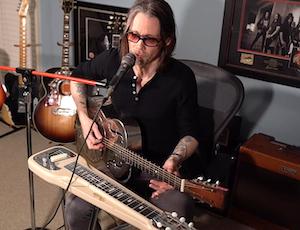by Kitty Empire Islington Assembly Hall, London The Welsh guitarist’s awe-inspiring technique and intense musicality made a transporting first gig…
Tag: guitar
Myles Kennedy plays his favorite riffs on four different instruments
[embedyt width=”520″] https://www.youtube.com/watch?v=4AL8zVSqKrU[/embedyt] Alter Bridge and Slash vocalist Myles Kennedy doesn’t just have killer pipes, but he also plays a mean guitar. In this edition…

